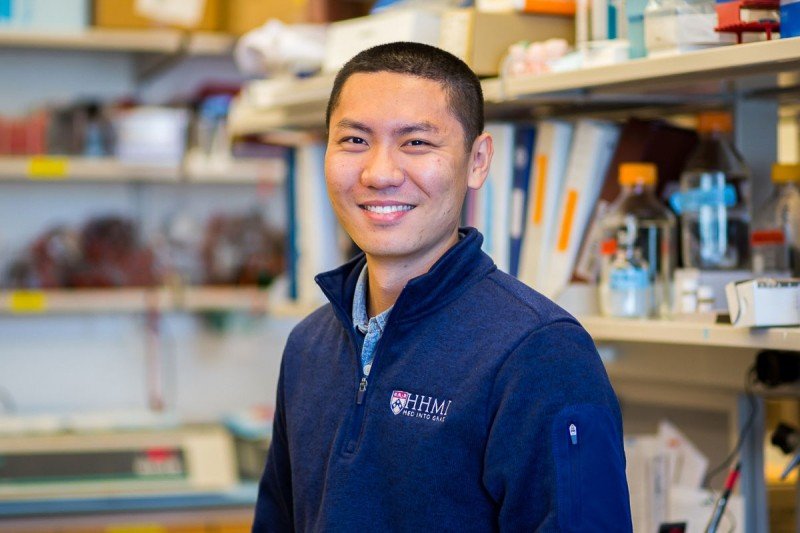
Zeda Zhang was recently awarded the Predoctoral to Postdoctoral Fellow Transition Award from the National Cancer Institute (NCI). The nationally competitive grant celebrates outstanding graduate students who have shown exceptional potential and interest in pursuing careers as independent cancer researchers.
A fifth-year PhD candidate at Gerstner Sloan Kettering Graduate School of Biomedical Sciences (GSK), Mr. Zhang was one of only 27 students in the United States to receive the fellowship this year.
“This is a competitive award in which PhD-granting institutions are allowed to nominate just one student,” says GSK Dean Kenneth Marians. “We’re very proud of Zeda and are excited about his future as a cancer researcher. The ability of a school as small as GSK to compete successfully on a national scale reflects the outstanding quality of our students and the strength of our curriculum.”
Mr. Zhang is the second GSK student to receive the prestigious award, which was introduced in 2016. The fellowship provides an NIH-level stipend and institutional allowance to support Mr. Zhang’s ongoing dissertation research at GSK and, upon earning his PhD, to facilitate his transition into the next stage of his career: a mentored, cancer-focused postdoctoral research position.
Taking on Drug Resistance
Mr. Zhang’s thesis research tackles the problem of drug resistance — a major challenge in cancer care. This has been a particular issue with antiandrogen therapies that target the androgen receptor in men with prostate cancer. Many men whose cancers initially respond well to these targeted therapies eventually die of relapsed, drug-resistant disease.
Recent studies have demonstrated that molecular signal disruptions between a tumor and its microenvironment can contribute to malignancy and resistance to therapy. Mr. Zhang is investigating the role of cancer-associated fibroblasts (cells that reside in the tumor microenvironment) in promoting prostate tumor growth and mediating drug resistance.
Making the Most of a Mentor’s Support
Integral to Mr. Zhang’s work is the use of new mouse model systems developed in the lab of his GSK thesis mentor, Charles Sawyers, MD, Chair of the Human Oncology and Pathogenesis Program at Memorial Sloan Kettering Cancer Center. An internationally recognized physician-scientist, Dr. Sawyers is a Howard Hughes Medical Institute investigator whose research focuses on cancer drug resistance with an eye toward developing novel therapies.
“My work has benefited greatly from Dr. Sawyers’s scientific insight, guidance, and experience, as well as the collaborative research environment he fosters,” says Mr. Zhang. “I have learned how to reconcile useful clinical observations, translate them into scientific hypotheses, and design disease-relevant research that bridges the gap from bench to bedside.”
Looking Ahead
After he graduates from GSK, Mr. Zhang plans to continue his training as a postdoctoral cancer researcher focused on exploring the molecular mechanisms of cancer progression and drug resistance. “By grasping a better understanding of the alterations in the cross talk between tumor cells and their surrounding components, I hope to discover new approaches to overcoming those problems,” explains Mr. Zhang.
He says that GSK has given him a solid foundation as a future independent investigator. “Although I am doing basic lab research, I have a very clear idea about the potential clinical impact of my work,” notes Mr. Zhang. “Being able to answer difficult scientific questions and help patients at the same time is what drives me to undertake this challenging but ultimately rewarding career.”





